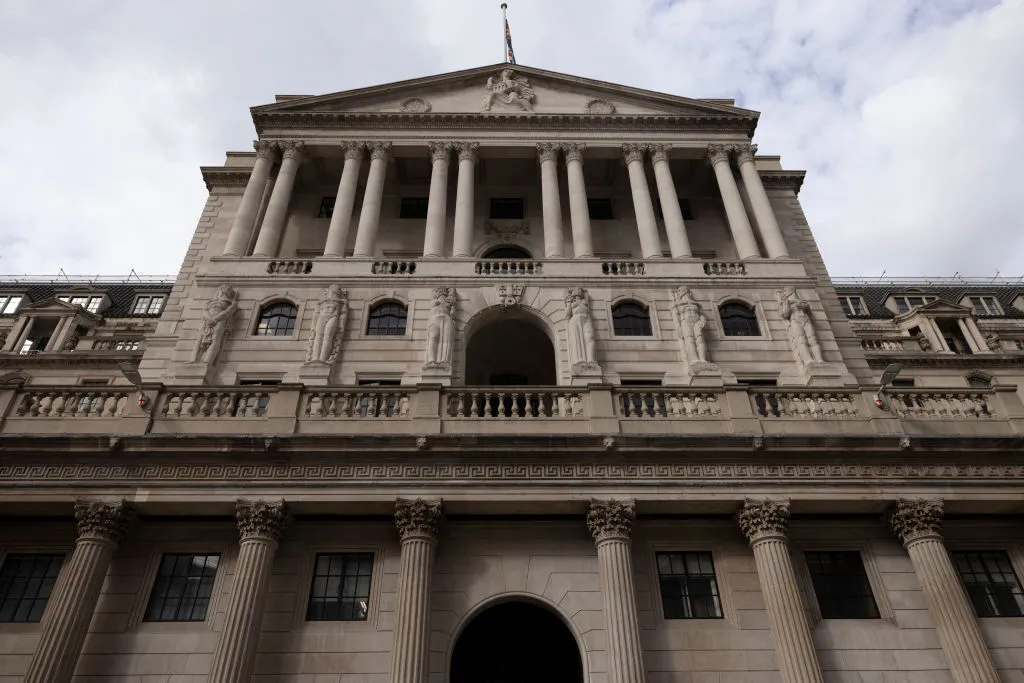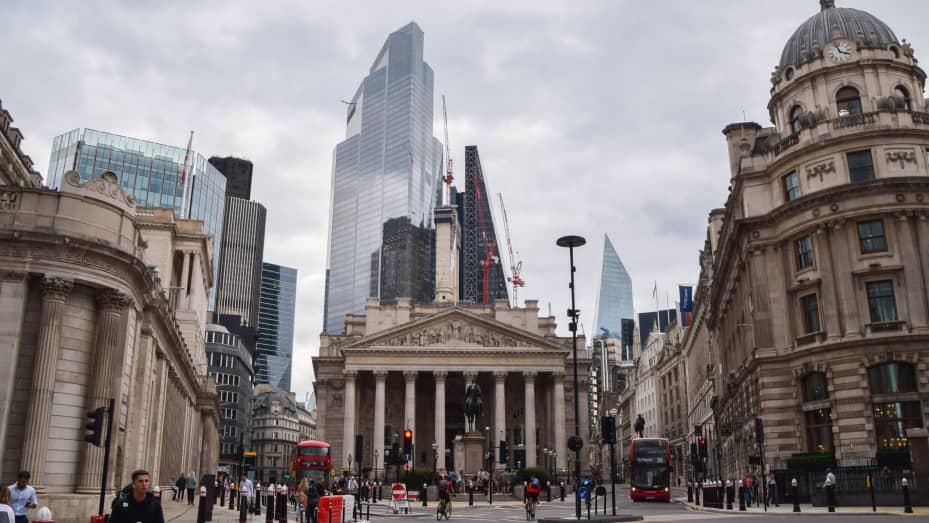On Thursday, the Bank of England raised interest rates by 50 basis points and moderated some of its previously pessimistic economic forecasts.
The Monetary Policy Committee (MPC) voted 7-2 in favor of implementing a second consecutive half-point rate hike, increasing the main Bank rate to 4%.
However, the committee’s decision statement suggested that smaller rate hikes and a potential end to the hiking cycle might be considered in future meetings. The two dissenting members preferred to keep rates unchanged at this meeting.
Importantly, the Bank of England also removed the term “forcefully” from its language regarding the necessity of continued rate increases to control inflation. The Bank anticipates a forthcoming reduction in the annual Consumer Price Index (CPI):
“Annual CPI inflation is expected to fall to around 4% towards the end of this year, alongside a much shallower projected decline in output than in the November Report forecast,” the Bank stated.
“In the latest modal forecast, conditioned on a market-implied path for Bank Rate that rises to around 4½% in mid-2023 and falls back to just over 3¼% in three years’ time, an increasing degree of economic slack, alongside falling external pressures, leads CPI inflation to decline to below the 2% target in the medium term.”
Despite this, the MPC noted that the labor market remains tight and domestic price and wage pressures have been more persistent than anticipated, indicating risks of “greater persistence in underlying inflation.”
In December, U.K. inflation stood at 10.5%, slightly down from the 10.7% recorded in November, as easing fuel prices helped to alleviate price pressures. Nevertheless, high food and energy costs continue to strain U.K. households and drive widespread industrial action throughout the country.
The Bank of England adjusted its economic outlook on Thursday, forecasting a shorter and less severe recession than previously projected in the November forecast.
The economy is now expected to contract slightly throughout 2023 and into the first quarter of 2024, due to high energy prices and rising market interest rates restricting spending.

The four-quarter GDP is anticipated to have decreased by 0.3% by the first quarter of 2023 and is projected to contract by 0.7% by the first quarter of 2024, compared to the 2% forecast in November.
Previously, the Bank had predicted that the U.K. economy was entering its longest recession on record. However, GDP unexpectedly grew by 0.1% in November, following an unexpected increase in October, suggesting that the upcoming recession may not be as lengthy or severe as initially feared.
Nonetheless, the International Monetary Fund (IMF) downgraded its projection for U.K. GDP growth in 2023 to -0.6% on Monday, making it the world’s worst-performing major economy, even behind Russia.
The value of Sterling fell 0.7% against the dollar, and gilt yields dropped, as the central bank indicated that rates are nearing their peak, while leaving open the possibility of further tightening if necessary.
“With the labour market softening and inflation beyond its peak, there doesn’t seem to be a good reason to tighten rate policy further, and don’t forget that quantitative tightening is still happening in the background,” said Boris Glass, senior economist at S&P Global Ratings.
“The BoE went from virtually zero to 4% in quick succession. These much higher rates have yet to show their full effect on the economy and, specifically, inflation.”
Glass also highlighted the potential impact on the housing market, noting that British mortgage holders are now facing a “double squeeze” of high inflation and significantly higher mortgage costs. S&P Global believes the Bank will pause to observe the effects of its current tightening on inflation and the broader economy.
“Wage inflation has been stubbornly high, albeit well behind inflation, but it’s what makes higher inflation persist in the future, and that’s a main concern for the BoE, so it will be closely watching the labour market and pay growth in the next few months,” Glass added.
Hussain Mehdi, macro and investment strategist at HSBC Global Asset Management, also suggested that the main Bank rate is now “near its peak,” with the growth outlook “still soggy” despite the upward revisions.
“The big question is now the speed at which the MPC can reverse course on rates. A downside risk for markets and the economy is a prolonged period of restrictive policy to address persistent underlying inflation,” Mehdi said.
“We retain a cautious view on U.K. and European stocks in the face of downside risks to GDP and corporate earnings growth relative to consensus expectations, and believe the recent rally to be unsustainable.”







Leave a Reply